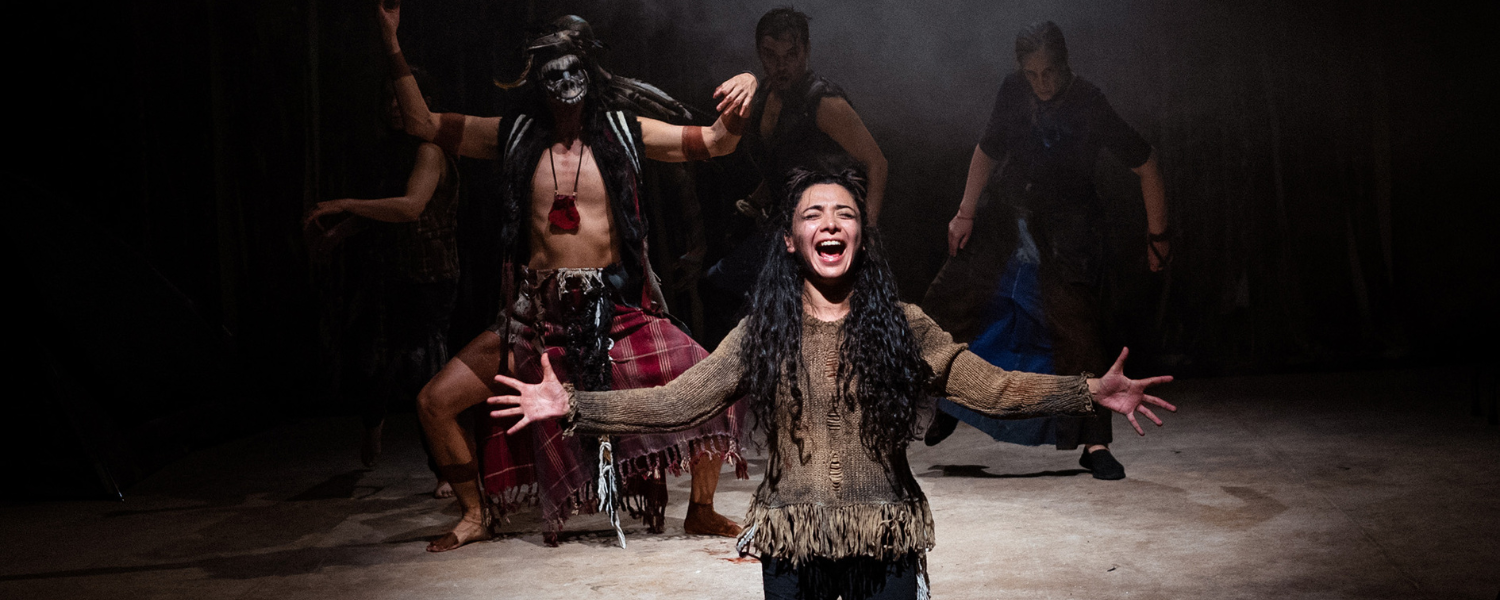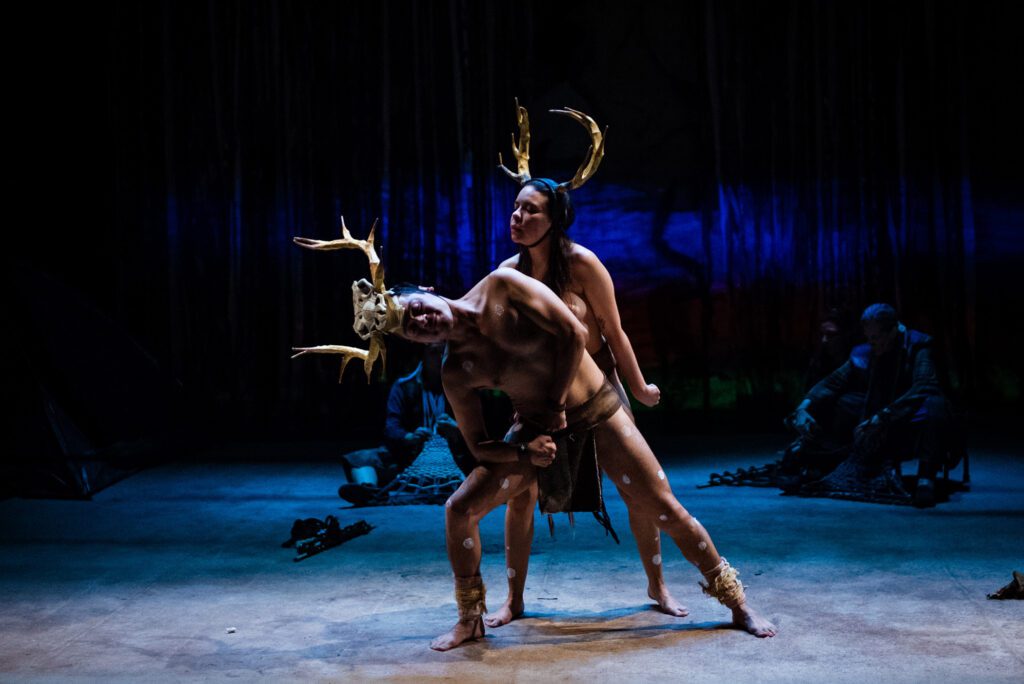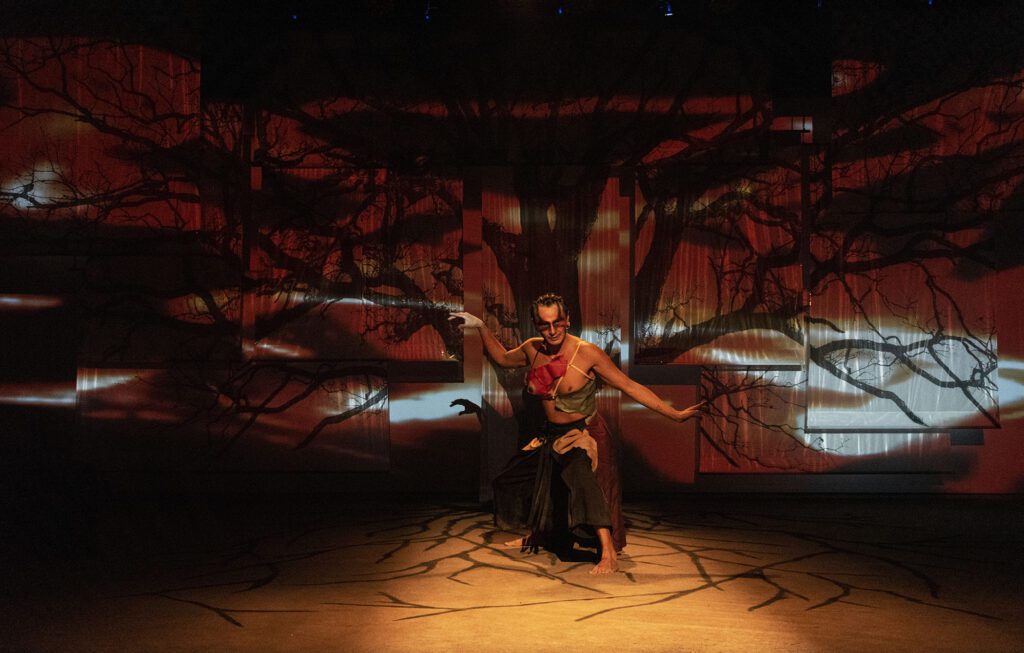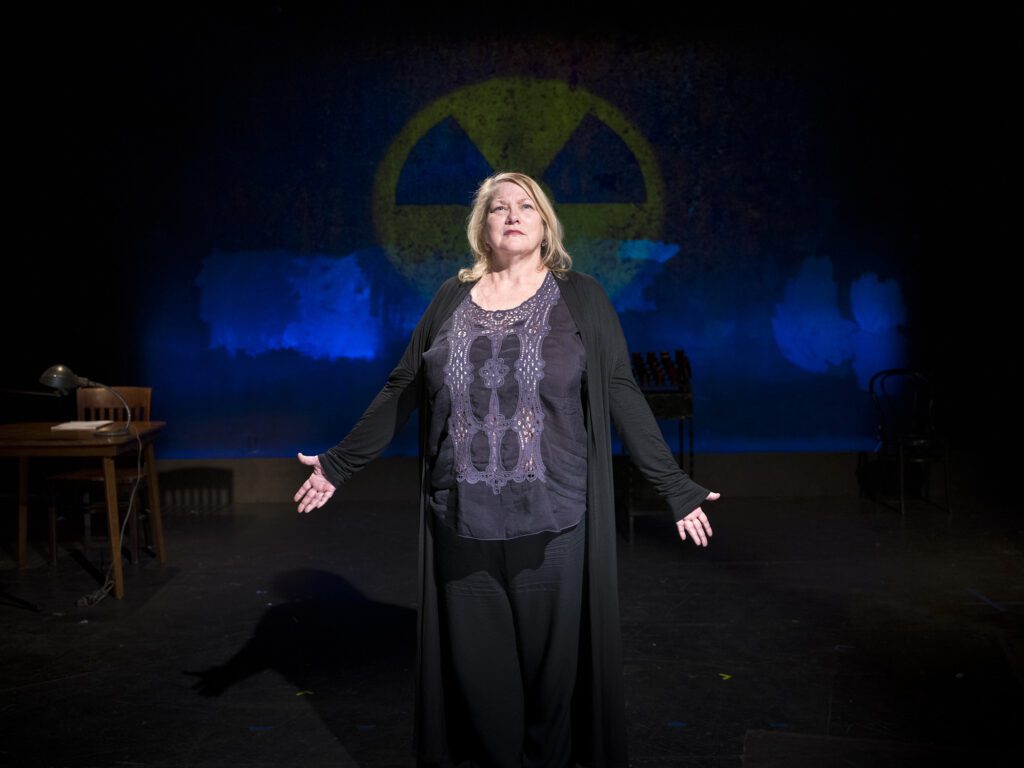Review: Anora
Reviewed by Aleksandr Tverdokhleb
Warning: Contains spoilers for Anora
Weeks have passed since the 2025 Academy Awards ceremony, which took place on March 2 at the Dolby Theatre in Los Angeles. The film Anora by Sean Baker was the evening’s triumph, winning five statuettes out of six nominations, making it the most awarded film at the event. The movie tells the story of Annie Mikheeva (played by Mikey Madison, who won an Oscar for this role), a prostitute and daughter of Russian-speaking immigrants. While working at a strip club, she meets Ivan (Mark Eidelstein), the son of Russian oligarchs. He offers her money to live together, later confesses his love, and proposes to her despite the radical disapproval of his parents (Aleksei Serebryakov and Darya Ekamasova, respectively).
Even if you haven’t heard about Anora before, its cast alone highlights its uniqueness: among the lead actors, only Mikey Madison is American; the other key characters are played by four Russian actors and two Armenian-born performers. This gives the film a distinctive atmosphere, reflected not only in the script (a quarter of the dialogue is in Russian) but also in its rich Eastern European aesthetic. This is evident not only in the characters’ costumes, which differ significantly from the American crowd, but also in certain small habits that are very familiar to Eastern European residents. For example, at one point in a cafe, Toros (Karen Karagulian) starts scolding the nearby American youth, using extremely stereotypical phrases about how the new generation is “not what it used to be” and “doesn’t respect their elders,” even though the American kids have done almost nothing. I think this is very familiar to those who grew up in Eastern Europe and often faced judgment from older generations in public places, hearing similar phrases—even when they had done nothing at all. It’s also noticeable that the Armenian characters park terribly every time, breaking multiple rules and even getting fined once, which feels completely natural, given that they come from a country that is significantly less car-oriented than the U.S.
At first glance, the film seems to follow the signature style of Sean Baker’s directing. His previous works—Tangerine, The Florida Project, and Red Rocket—focus on marginalized communities, with the protagonists of Tangerine and Red Rocket also tied to the adult entertainment industry. However, Anora takes a slightly different path:within the first 20 minutes of the film, the heroine finds herself in a world of luxurious interiors and ultra-wealthy elites.One of the film’s standout features is its visual style, which earned an Oscar for Best Editing. Baker has always been known for his experimental approach to cinematography—for example, Tangerine was shot on a modified iPhone camera to enhance realism. In Anora, he employs various unique cinematographic techniques. In an interview with Hammer To Nail, the director revealed that he deliberately changed film stock and lenses to emphasize color contrasts, with warm tones giving way to cold ones, creating a visual transition between different worlds. Additionally, this helped evoke a 1970s aesthetic, with the set design carefully chosen to match this effect.

eight films, he was the director, screenwriter, producer,
and editor.
Anora has a distinct, three-part structure. The first part is an erotic melodrama centered on the relationship between Annie and Ivan. This is the weakest segment of the film. The second is a burlesque comedy that begins with the arrival of Armenian “bodyguards” (Karen Karagulian and Vache Tovmasyan) and the Russian “bouncer” Igor (played by Oscar nominee for Best Supporting Actor, Yuri Borisov), whom Ivan’s parents send to New York to annul his marriage to Annie. The third part is a drama, though not without humorous moments—Baker generally avoids pure drama, preferring to balance intense scenes with irony. All three parts share a similar narrative structure, featuring abrupt transitions from loud scenes where characters shout at each other, to quiet episodes in which they sluggishly chew food, watch TV, or engage in routine activities with almost no dialogue.
Overall, the film flips the classic Cinderella storyline on its head. We’ve seen this before in the 1990 film Pretty Woman: a young woman from the social bottom falls in love with a wealthy man and enters the world of the rich. But instead of happiness, as in traditional fairy tales, she discovers that her chosen lover or suitor—who has only known her for a couple of weeks—does not truly love her. And both protagonists of these two Cinderella-esque films realize that money is not a cure-all for life’s problems.
In 2025, viewers of Anora already understand the unrealistic nature of tales like Cinderella and may not expect a happy ending for Anie and Ivan’s relationship. It doesn’t help that Ivan is portrayed throughout the film as an infantile,thoughtless teenager. However, the goal of the film is not to surprise the audience with the sudden realization that marrying someone after two weeks, especially when that person behaves like a child, is a bad idea. Instead, Sean Baker’s aim is to highlight the doomed nature of this marriage via the characters who become the emotional core in the second half of the film: the Armenian “fixers” Toros (Karen Karagulian) and Garnik (Vache Tovmasyan), as well as the Russian Igor (Yura Borisov). These latter characters have incredible charisma. Given that a large portion of their dialogue was improvised, the actors demonstrate remarkable skill. Sean Baker does not speak Russian, so the delivery of lines relied entirely on the actors themselves. The choice of words and intonations was up to them, and in this regard, all Russian-speaking characters showcase an exceptional level of acting.
So what is Anora really about? Neither Ivan nor Anie evokes strong positive emotions at the beginning of the story—one is an immature fool, and the other is overly trusting and at times overly hysterical. Watching the first third of the film, as a viewer, you want to tell Anie not to be so naive when Ivan repeatedly proves how irresponsible he is. And you also want to tell Ivan that to stop acting like a child. When the characters played by Vache Tovmasyan, Yura Borisov, and Karen Karagulian appear, they do exactly that—they voice the concerns of the audience, and interfere with the romance. This strengthens the viewers’ emotional connection with them. On top of that, they deliver almost all of the film’s best jokes. Even when reading American reviews of the movie (for example, on IMDb), it’s clear that even those who didn’t like the film still appreciated the outstanding performances of the Russian-speaking actors.Anora does not just tell the story of Mikey Madison’s heroine—it also presents a classic Hollywood narrative through the eyes of people who usually remain in the background: the employees of wealthy Russian oligarchs, who may appear to have no “real” influence and who work for extremely unpleasant individuals, but still try to conduct themselves with dignity. These characters may be easier to relate to, for the audience

Karen Karagulian, Mikey Madison, Yura Borisov, and
Vache Tovmasyan
Anora is not without its flaws. The excessively sharp editing and the alternating loud and silent scenes may feel exhausting. Additionally, in the first third of the film, the main characters can be irritating at times. However, these shortcomings pale in comparison to the film’s strengths, and Sean Baker absolutely deserved those Oscars.
As for the actors from Southeastern Europe, they deserve the applause too. They not only delivered phenomenal performances, but also became the emotional heart of the film. Thanks to them, Anora stands out from the sea of films released in the past year, serving as a brilliant example of how Russian language and Russian-speaking actors can be used in cinema in a way that feels natural, effective, and well-done. It is especially gratifying to see that Western audiences have also appreciated these performances, confirming just how exceptional they truly are.

Aleksandr Tverdokhleb is a student at Pomona College who is studying cognitive science. He reviews films that reveal how members of one culture perceive and interpret a culture less familiar to them. Additionally, he enjoys exploring the phenomenon of Eastern European diasporas in the United States.
SUPPORT SEEFEST
Not a member yet? Become an art patron with other SEEfest arthouse aficionados in support of great events and programs, as well as our mission to keep you informed about initiatives from our wide network of fellow cultural organizations.
We Welcome YOU!
Review – Pueblo Espíritu

Pueblo Espíritu devised by Organización Secreta Teatro
Reviewed by Amanda L. Andrei
Clutching their face masks and backpacks, four exhausted individuals stumble into a strange forest. Nerves clearly shot, they spray disinfectant at each other and come to blows, but not before a fifth person appears, coughing so hard that they fall to the ground. In the ensuing silence and weight of paranoia, the individuals surrender to their fatigue—and to the spirits of the surrounding land.
So starts Pueblo Espíritu (“Spirit Town”), a wordless multimedia performance devised by Mexico City’s experimental Organización Secreta Teatro and directed by company founder Rocío Carrillo. Wordless, yet carried by character grunts and overhead music swelling with drums and chants, the ensemble (Beatriz Cabrera, Alejandro Joan Carmarena, Brisei Guerrero, Stefanie Izquierdo, Ernesto Lecuona, Mercedes Olea, and Jonathan Ramos) remake their post-apocalyptic environment by communing with the wildness of the spiritual world and returning to embodied material-making practices, such as weaving and ceremonial medicine.

There’s still peril in the spiritual world, though, and tension between physical, social, and spiritual boundaries explored more through dream logic than by way of any definitive storyline. A gloriously painted bird-entity (Carmarena) seems to have power over the dead, but is also susceptible to the tricks of a feral girl (Izquierdo) who appears to be negotiating her status as human, animal, and warrior.
A medicine man (Ramos) leads the group in a ceremony where a fierce feminine divinity arises and dances amidst dangerous laughter (Guerrero), while afterwards an archer and hunter (Lecuona) deals with a terrifying apparition and deer-like spirit (Cabrera) in what could be a nightmare or the birth of something more sinister.
An elderly woman (Olea) observes and absorbs much of this pain, sometimes serving as a guide and other times as a witness.
Carrillo’s direction steers the ensemble between swift dances, tender embraces, and erotic animalistic movements to portray the porous interdimensionality of the worlds. Erika Gomez’s design conjures up a lavish natural world, yet one still marred by civilization and prone to interruption. The mask and makeup elements are particularly inspired and detailed, turning ordinary humans into supernatural creatures in mere moments.
If I could change one thing about the production, I would wish for better audio quality or live performance of the music. While the melodies are epic and reminiscent of traditional indigenous songs, the overheard sound and its slightly tinny quality could be distracting, and moments of the actors lip-synching or chanting along with the soundtrack lent me a slight feeling of uncanny disembodiment, a friction between the digital and the live performance clashing with my visual and aural senses in a way that took me outside of this otherwise enchantingly bewildering world.
However, this friction made silences onstage and any subsequent ensemble noises (sans sound) even more poignant and profound, as the echoes faded and wrapped the audience within a reverent stillness.
While Pueblo Espíritu has a limited run at the Latino Theater Company with only five performances until May 7, the ensemble will also be performing Las Diosas Subterráneas (“Subterranean Goddesses”), an experimental adaptation of the Greek myth of Persephone (the maiden goddess kidnapped by the god of the underworld) juxtaposed with the story of Luz García, a character based on real-life women kidnapped by human traffickers.
With these two stories intertwining, the ensemble seeks to portray the story of mothers looking for their missing daughters while finding strength in community. With these two performances, Organización Secreta Teatro gives us an entryway into vigorously magical worlds, inviting us to examine our own relationships with spirit, land, and power.

Pueblo Espíritu had five performances, concluding on May 7.
Las Diosas Subterráneas performs the following week, on Wednesday, May 10 at 8 p.m.; Thursday, May 11 at 8 p.m.; Friday, May 12 at 8 p.m.; Saturday, May 13 at 8 p.m.; and Sunday, May 14 at 4 p.m.
Tickets range from $22–$48, except opening night (May 3), which is $58 and includes pre- and post-show receptions. The Los Angeles Theatre Center is located at 514 S. Spring St., Los Angeles, CA 90013. Parking is available for $8 with box office validation at Joe’s Parking structure, 530 S. Spring St. (immediately south of the theater).For more information and to purchase tickets, call (213) 489-0994 or go to www.latinotheaterco.org
Pueblo Espíritu photos by Ángela Chapa
Las Diosas Subterráneas photo by Erika Gómez

Reviewer Amanda L. Andrei is a Filipina Romanian American playwright, literary translator, and teaching artist residing in Los Angeles by way of Virginia/Washington DC. She writes epic, irreverent plays that center the concealed, wounded places of history and societies from the perspectives of diasporic Filipina women, and she translates from Romanian and Filipino to English. For more information on her work and upcoming events, visit: www.AmandaLAndrei.com
SUPPORT SEEFEST
Not a member yet? Become an art patron with other SEEfest arthouse aficionados in support of great events and programs, as well as our mission to keep you informed about initiatives from our wide network of fellow cultural organizations.
We Welcome YOU!
Review: And If I Don’t Behave Then What
Reviewed by Amanda L. Andrei
Open Fist Theatre Company
Through March 4

And If I Don’t Behave Then What
L.A. premiere of the new play by Iva Brdar
Ovaries on the concrete. Chin and cheek dimples with the sound of a drill. Being polite, kind, and well-behaved in the face of nameless, insidious forces.
The play consists of various vignettes, starting from Age 0 and culminating when “Woman” is in her 70s. Woman consists of Cynthia Ettinger, reading pages of printed paper or from her phone as she recounts memorable events of a life. However, Woman also consists of Carmella Jenkins, who could be interpreted as a version of a younger self, or another part of the subconscious, and at times Debba Rofheart, the most prominent candidate for the Woman’s mother, voicing the mother’s instructions to her daughter (such as the darkly humorous line, “Don’t sit on concrete, your ovaries will get cold”). And Woman could also consist of Howard Leder, playing the majority of the men’s roles, where the masculine in this world is coldly distant, silent in its brutality, or in a deadpan delivery drawing amusement from the audience, hilarious in its unawareness in giving instructions on how to parallel park.

Photo by frank ishman
All these scenes seem to add up to a life that, while portrayed intimately in its details, still feels alienated in the world and to the audience. Rofheart’s “character” (if you can label that part of the text as such) never moves from the seat at the darkened desk, casting a metaphorical shadow of an ever-present yet never-interacted-with mother. And Ettinger has a lovely, soothing voice—when glancing away from the pages, she also serves us lively facial expressions and reactions.
Yet I found myself craving more from the text and questioning the choice to leave the Woman character seemingly on book. Is the Woman a writer or otherwise an intellectual? Is the story so burdensome that it needs an additional interface of pages to separate us from the pain at the heart of these vignettes? From a literary standpoint, these words and images are beautiful, but seeing it performed, I found myself living in my head, the words washing over me, wondering about who the person was behind the text.
And that may be part of the intended effect. I also found myself yearning for more grounding from the playwright’s culture, simultaneously questioning if this world was meant to be a more anonymous post-communist country. The text referenced a former communist country and teaching Marxism, but that could be so much of not only Eastern Europe, but Asia or Latin America as well. I wondered if, from a translation standpoint, there were more words from the original language that could culturally ground the text, or if from a design point, more references to the original culture of the text and its author could be included in the musical transitions or projections—not to exotify, but more to ground an audience member.
Or perhaps that is part of the whole point, that even if the playwright is identified as Serbian, the region has dealt with such a variety of labels, conflict, and grief that perhaps the priority of this performance is not culture, but rather womanhood, the multiplicity of a woman’s life, and the entanglement between mother, daughter, and other knotted ancestral ties and norms packaged up as folk culture to keep us safe. Furthermore, Director Beth F. Milles notes in the program that the piece is written as a “long tone poem” with no punctuation, and so the possibilities for this text are immense. And perhaps this immense tension is what ultimately underlies the piece—that while there are so many possibilities in life, it might still end in a strangely alluring yet alienating mystery.
Atwater Village Theatre is located at 3269 Casitas Ave in Los Angeles, CA 90039. Parking is free is in the ATX (Atwater Crossing) parking lot one block south of the theater.
To purchase tickets and for more information call (323) 882-6912 or go to www.openfist.org.

SUPPORT SEEFEST
Not a member yet? Become an art patron with other SEEfest arthouse aficionados in support of great events and programs, as well as our mission to keep you informed about initiatives from our wide network of fellow cultural organizations.
We Welcome YOU!

